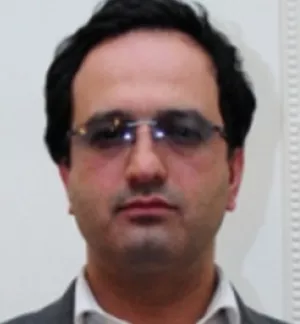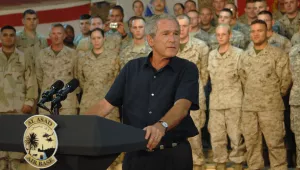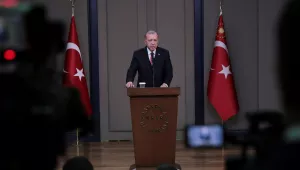"The current conflict between Shia and Sunni factions in the region is the result of ascendancy in the Shia factions' role in the region following the rise to power of a Shia-dominated government in Iraq. Ignoring the Shias' political demands in the region has planted a rift and potential sense of resentment within Shia-Sunni relations. Some analysts tend to discuss that this sense of hostility has been triggered by two elements: 1) Zarquawi and al-Qaeda attempts to plant sectarian violence by bombing the Shia sacred shrines in Samara; 2) The U.S. democratization policy and attempts to create participatory politics, which pushes Iraqis to look for new identities....
The Arab world's concerns about the emergence of a supposed Shia crescent are based on some realities. First, any alliance between Iran and Shia factions in the region will imbalance the position of Sunni governing elites in governmental institutions. Some assessments even say the emergence of a Shia crescent is a fear tactic by Sunni autocrats to cement Washington's political and financial supports for their regimes. Second, such an alliance takes place in countries like Iran, Iraq, Syria and Lebanon (Hezbollah) where the regimes are against the existing political status quo. Third, the establishment of such an alliance, which confronts the U.S. presence in the region, will question the legitimacy of the region's conservative regimes who have, in several stages, agreed the American troops' presence in the region. This is especially imperative in terms of influencing the Shia minorities in the Persian Gulf littoral states. In this context, undoubtedly, the creation of a democratic Shia government in Iraq will be a serious challenge to the Sunni regimes of the region. If indeed Iraq's progressive constitution is fully implemented, for instance, instituting a participatory politics in the region would be a threat to the existing regional political-social regulations in the Persian Gulf region.
However, despite all these new concerns raised by the Arab world, the Shia factor in Iran's foreign policy is mostly acting in line with Iran's pragmatic policies in establishing friendly relationships with states in the region. It mainly aims to tackle security concerns as well as creating economic-cultural opportunities. The role of the Shia factor in expanding Iran's relations with the new Iraq is a good example. Because of the nature of opportunities and challenges, Iran has ultimately pursued a pragmatist foreign policy in Iraq. This is because of the range and involvement of the different layers of Iranian society as well as the nature of the political-security issues, which are affecting Iran’s foreign policy in Iraq.
Since 2003, the involvement of various layers of Iranian society such as average Iranians traveling to the sacred cities, merchants for developing trade, intellectuals and executives elites in expressing their security concerns, etc., have greatly affected Iran's Iraq policy. Meanwhile, the perils resulting from the immediate security threats such as the U.S. troop's presence, civil war, sectarian violence, ethnic fragmentation, etc., from the new Iraq, have forced Iran to direct its foreign policy pragmatically and in line with its national interests...." more>
Barzegar, Kayhan. “The Shia Factor.” Heartland: Eurasian Review of Geopolitics, 2008
The full text of this publication is available via Heartland: Eurasian Review of Geopolitics.





